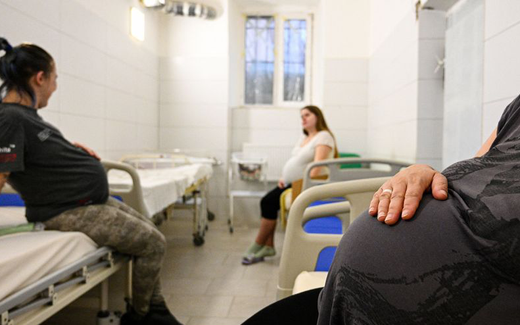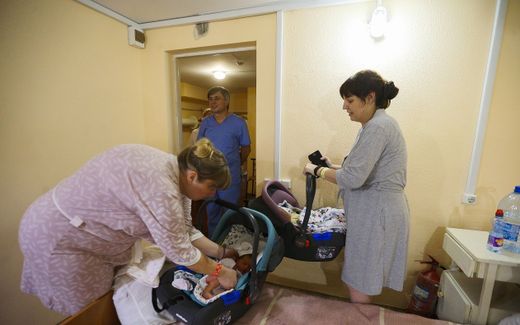European Parliament takes a step against surrogacy

Members of a conservative activist group stage a protest against surrogacy near the Eiffel Tower in Paris. Photo AFP, Julien de Rosa
European Union
Pro-life organisations and politicians laud the adoption of a draft against human trafficking within the European Parliament. “Reproductive exploitation” is on its way to becoming an EU-wide crime.
To combat human trafficking and help its victims, the Women’s Rights and Civil Liberties committees within the European Parliament adopted a draft position on revised rules. Several Members of the European Parliament (MEPs) wanted to include “surrogacy for the purpose of reproductive exploitation” in that draft. In a vote on Thursday, that amendment was approved with a solid majority.
While the text leaves room for interpretation, politicians and pro-life organisations react delighted to the result. The French MEP François-Xavier Bellamy of the centre-right European People’s Party Group (EPP) tabled the amendment. He calls the approved draft “a very important step to protect the most vulnerable and to fight against the commodification of bodies.”
However, Bellamy’s amendment attracted wider support than just from conservative quarters. Several socialist MEPs also supported the amendment.
One of Us, the European Federation for Life and Human Dignity, called the voting result “groundbreaking.” According to Marina Casini, the president of the pro-life NGO, this decision “means that the weakest will be more protected in the European territory.”
Loophole
While surrogacy is forbidden in several European countries, including France, many countries have no regulation on the practice whatsoever. Furthermore, there are calls to regulate surrogacy in several countries, such as the Netherlands and France. Critics, however, argue that regulation will only make the controversial practice more popular and abuses more likely. The lack of legal frameworks also means that cross-border surrogacy allows intended parents to get a child through surrogacy abroad, even though it may be forbidden in their home country. Italy is currently debating a “universal ban” to criminalise this loophole.
Because of the strong support the final document received, with 69 votes in favour and 0 against, it goes straight to the so-called trialogue. These are informal meetings with the EU Council, the European Parliament and the European Commission, in which legislation is discussed. This can ensure that a law goes through the various European bodies faster and thus comes into force faster.
MEP Bellamy has his hopes on Spain, which currently holds the Presidency of the Council of the European Union. “The Spanish socialist government has repeatedly expressed its opposition to surrogacy; we are counting on its authority to make this position of Parliament effective and to bring this ban into force.”
Related Articles







